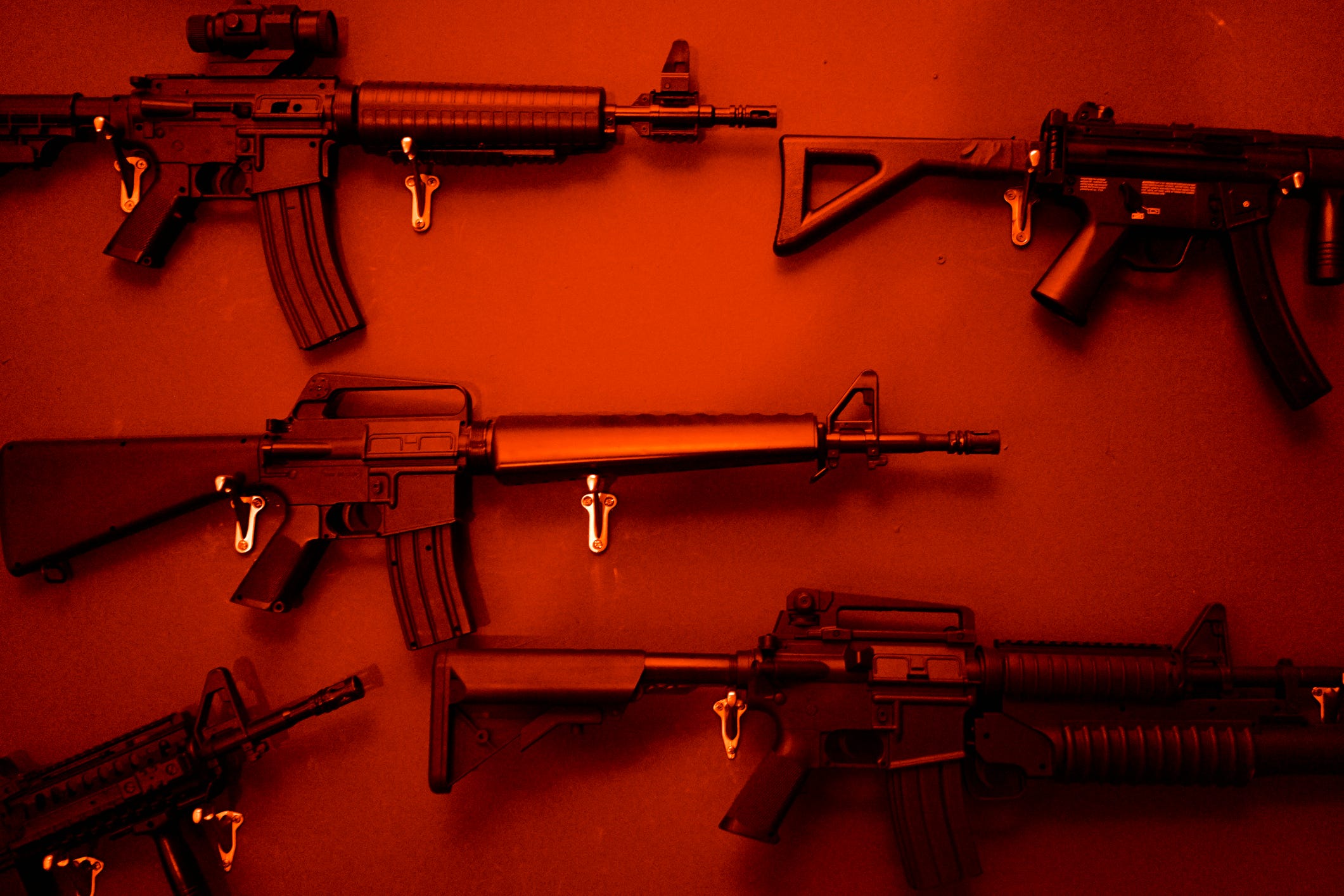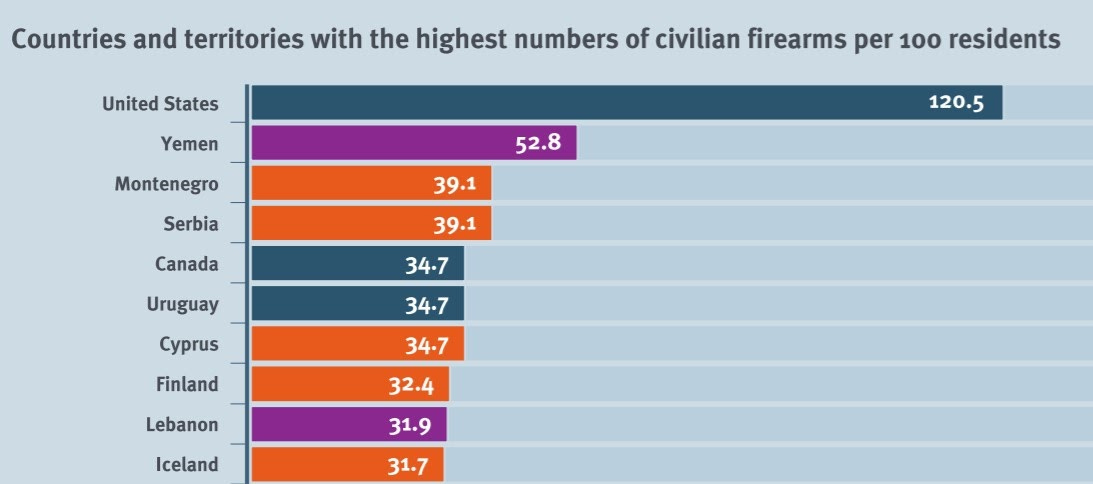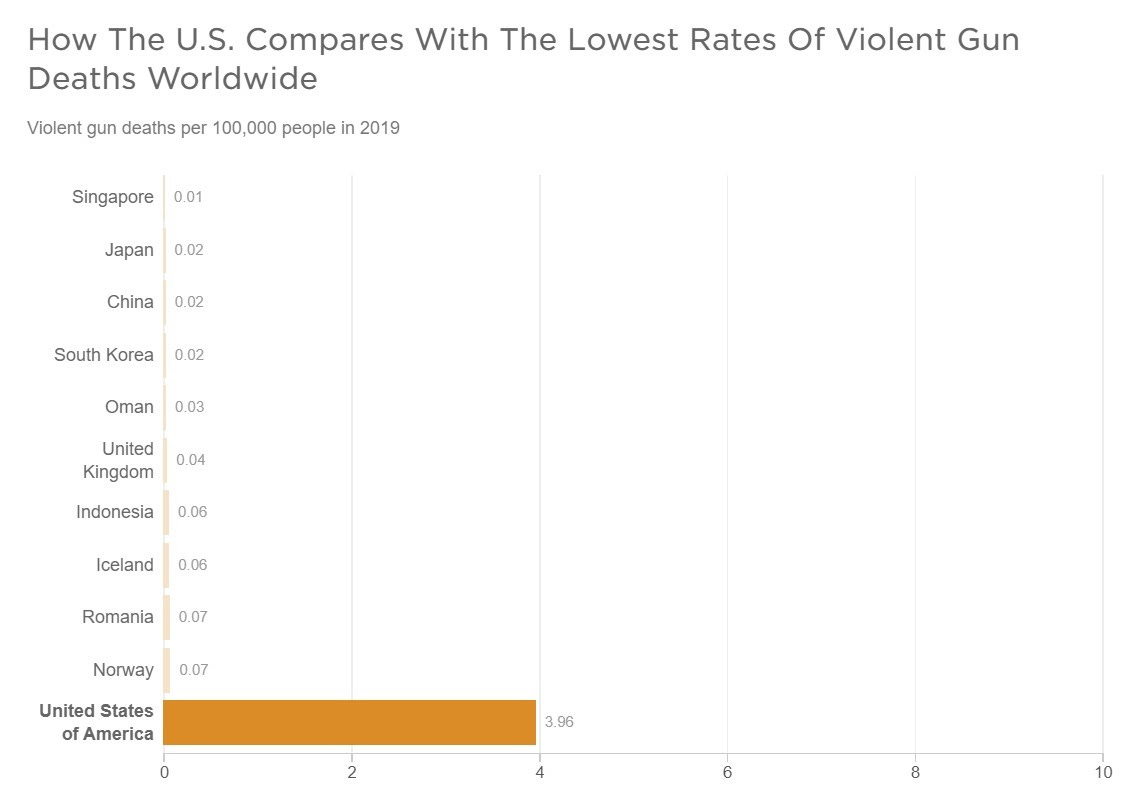Why the body count hasn't slowed down America's gun industry
Last week, Popular Information broke the news that Cigna was one of a handful of companies that broke its promise and resumed donating to Republicans who voted to overturn the election. In January, Cigna had pledged to "discontinue support of any elected official who… hindered a peaceful transition of power." On Monday, the New York Times picked up the story. Cigna issued a new statement, in which they claimed that voting to overturn the election is "part of the peaceful transfer of power."
Popular Information's independent journalism is exposing corporate hypocrisy. You can support this work with a paid subscription. The spring of 2021 has brought a stream of mass shootings across the country. Eight people killed at a FedEx warehouse in Indianapolis, Indiana. Ten people killed in a grocery store in Boulder, Colorado. Eight people killed in three spas in Atlanta, Georgia. Four people, including a 9-year-old boy, killed in a real estate office in Orange, California. Over the weekend, three people were killed in Austin, Texas. But the grim reality is that this is now a "normal" year of gun violence in the United States. According to the Gun Violence Archive, 19,394 people lost their lives due to non-suicide gun violence in 2020. The number of non-suicide gun deaths in 2021 is 5,564, which is on track for a similar total. These numbers have risen considerably over the last decade. In 2014, for example, the total number of non-suicide gun deaths was 12,354. Why do so many people die from gun violence in the United States? One reason is that there are a lot of guns in the United States. According to a 2018 Small Arms Survey, the latest data, there are more civilian-owned firearms in the United States than people — more than 120 guns for every 100 Americans. The number of guns sold has increased dramatically in recent years. A record 39,695,315 guns were sold to civilians in 2020. By comparison, there were 15 million guns sold in 2011 and 9 million in 1999. Remarkably, this spike has occurred as the number of people interested in owning guns has declined. In 1977, more than 50% of all households in the United States owned a gun. By 2018, just 34% of American households reported having a gun in the home. Gun manufacturers have made up for this decline by selling a larger number of more deadly firearms to a smaller number of people. There are countries, including El Salvador, Brazil, and Mexico, with higher gun deaths per capita than the United States. But the number of gun deaths per capita in the United States is exponentially higher than other wealthy democracies like Japan, the United Kingdom, and South Korea. While the prevalence of guns and gun violence in the United States is typically attributed the protections on gun ownership afforded by the Second Amendment, that is not the full story. Much more recently, Congress has awarded special privileges to the gun industry. This legal framework has allowed gun manufacturers to produce large quantities of deadly firearms with little risk. Teddy Bears versus AK-47sNearly every product — from toasters to lawnmowers to teddy bears — must comply with standards set by the government to ensure the item is safe for public use. The Consumer Product Safety Commission (CPSC) regulates household goods and recreational products. The Food and Drug Administration regulates food and prescription drugs. And the National Highway Traffic Safety Administration regulates motor vehicles. But there is one category of products that is not regulated for consumer safety by any government agency: guns and ammunition. The Second Amendment has been in place since 1788, but the consumer protection exemption for guns came much later, in 1972. A law passed that year explicitly forbids the CPSC from evaluating the safety of guns. As a result, there "is not a single federally mandated safety standard or child-proofing requirement for firearms made in the United States." The exemption was spearheaded by the late Congressman John Dingell (D-MI). At the time, Dingell was both the ranking member of the Commerce Committee, which was considering the legislation, and a board member of the NRA. The exemption means that the CPSC can regulate toy guns but not actual guns. The agency can mandate a recall of a doll, due to safety concerns, but not a semi-automatic rifle. Currently, firearm safety is regulated by the firearm industry, through a group called the Sporting Arms and Ammunition Manufacturers’ Institute (SAAMI). The industry has established some useful regulations, including maximum pressure standards so that guns do not explode during use. But SAAMI operates much differently than a government agency. Specifically, "it does not solicit feedback from the public." In the absence of federal regulation, states have created a patchwork of rules. California and Massachusetts "require independent labs to drop-test firearms to ensure they don’t accidentally discharge." New York requires "that handguns include various features, such as a safety device to prevent firing." But since guns travel frequently across state lines, these regulations have a limited impact. The regulation of guns as a consumer product could save lives without imperiling Second Amendment rights. Similarly, the application of consumer safety standards to cars, another dangerous product, has not restricted the ability of people to drive. But it has saved countless drives by ensuring that cars are designed to be as safe as possible for drivers, passengers, and the public. Special immunity"Most people don’t realize, the only industry in America, billion-dollar industry, that can’t be sued, exempt from being sued, are gun manufacturers," Biden said on April 8. That is not precisely true. But Biden is referring to the Protection of Lawful Commerce in Arms Act (PLCAA), signed into law in 2005, which does provide sweeping legal immunity to the gun industry. The PLCAA prevents gun manufacturers from civil liability resulting from "the criminal or lawful misuse" of firearms or ammunition. But there are a few exceptions to the law, including an "action for death, physical injuries or property damage resulting directly from a defect in design or manufacture of the product, when used as intended or in a reasonably foreseeable manner." You can sue a gun manufacturer civilly if the gun malfunctions. But, in nearly every circumstance, you can't sue if the gun functions properly and kills people. Prior to the PLCAA's passage, in 2000, New York City and 30 other localities sued gun manufacturers, alleging the "industry’s selling practices create a public nuisance by allowing guns to be sold in an illegitimate secondary market where they fall into the hands of criminals." Had the lawsuit been successful, the gun industry would have to be much more careful about how firearms are marketed and sold. It could have curtailed firearms that are "designed and marketed primarily for killing people, with military-inspired features and advertising." But the PLCAA was passed to end New York City's lawsuit and others like it. The lawsuits were thrown out of court. While civil litigation has prompted significant reform in the tobacco and pharmaceutical industry, the gun industry is able to continue with business as usual as the body count mounts. |
Older messages
How the GOP uses Facebook to scam Republican donors
Monday, April 19, 2021
In the closing weeks of the 2020 presidential election, the Trump campaign faced a cash crunch. To solve it, the campaign effectively resorted to defrauding its own supporters. Starting in September
What we learned from the first major FEC deadline after the insurrection
Monday, April 19, 2021
After the January 6 attack on the Capitol, about 170 companies announced they were suspending donations from their corporate PACSs to the 147 Republicans who voted to overturn the election results or
A Zoom call will not save democracy
Tuesday, April 13, 2021
Over the weekend, about 100 corporate leaders gathered on a Zoom call to discuss how to respond to Republican efforts to restrict voting in nearly every state. Although the call was ostensibly private,
These rainbow flag-waving corporations are backing the sponsors of anti-trans legislation
Monday, April 12, 2021
Seven members of the North Carolina Senate have introduced draconian anti-trans legislation targeting children, adults, and medical professionals. An investigation by Popular Information reveals that
How not to protect free speech
Thursday, April 8, 2021
The free expression of ideas is a bedrock principle for any democratic society. And that is particularly true on college campuses, where many young people are still developing their core beliefs.
You Might Also Like
UW and computer science student reach truce in ‘HuskySwap’ spat
Saturday, January 11, 2025
Blue Origin set for first orbital launch | Zillow layoffs | Pandion shutdown | AI in 2025 ADVERTISEMENT GeekWire SPONSOR MESSAGE: GeekWire's special series marks Microsoft's 50th anniversary by
Cryptos Surrender Recent Gains | DOJ's $6.5 Billion Bitcoin Sale
Saturday, January 11, 2025
Bitcoin and other tokens retreated as Fed signaled caution on rate cuts. Forbes START INVESTING • Newsletters • MyForbes Presented by Nina Bambysheva Staff Writer, Forbes Money & Markets Follow me
Just Buy a Balaclava
Saturday, January 11, 2025
Plus: What Raphael Saadiq can't live without. The Strategist Every product is independently selected by editors. If you buy something through our links, New York may earn an affiliate commission.
Up in Flames
Saturday, January 11, 2025
January 11, 2025 The Weekend Reader Required Reading for Political Compulsives 1. Trump Won't Get the Inauguration Day He Wanted The president-elect is annoyed that flags will be half-staff for
YOU LOVE TO SEE IT: Biden’s Grand Finale
Saturday, January 11, 2025
Biden drills down on offshore drilling, credit scores get healthier, social security gets a hand, and sketchy mortgage lenders are locked out. YOU LOVE TO SEE IT: Biden's Grand Finale By Sam Pollak
11 unexpected things you can put in the dishwasher
Saturday, January 11, 2025
(And 7 things you should keep far away from there) View in browser Ad The Recommendation January 11, 2025 Ad 11 things that are surprisingly dishwasher-safe An open dishwasher with a variety of dishes
Weekend Briefing No. 570
Saturday, January 11, 2025
Black Swan Threats in 2025 -- Why Boys Don't Go To College -- US Government's Nuclear Power Play ͏ ͏ ͏ ͏ ͏ ͏ ͏ ͏ ͏ ͏ ͏ ͏ ͏ ͏ ͏ ͏ ͏ ͏ ͏ ͏ ͏ ͏ ͏ ͏ ͏ ͏ ͏ ͏ ͏ ͏ ͏ ͏ ͏ ͏ ͏ ͏ ͏ ͏ ͏ ͏ ͏ ͏ ͏ ͏ ͏ ͏ ͏ ͏
Your new crossword for Saturday Jan 11 ✏️
Saturday, January 11, 2025
View this email in your browser Take a mental break with this week's crosswords: We have six new puzzles teed up for you this week. Play the latest Vox crossword right here, and find all of our new
Firefighters Make Progress, Water Rankings, and Ohio St. Wins
Saturday, January 11, 2025
Multiple wildfires continued to burn in Southern California yesterday, with officials reporting at least 10 deaths. Over 10000 homes across 27000 acres have burned, and 20 suspected looters have been
☕ So many jobs
Saturday, January 11, 2025
So why did stocks fall? January 11, 2025 View Online | Sign Up | Shop Morning Brew Presented By Indacloud Good morning. It's National Milk Day, the one day of the year you're allowed to skim




